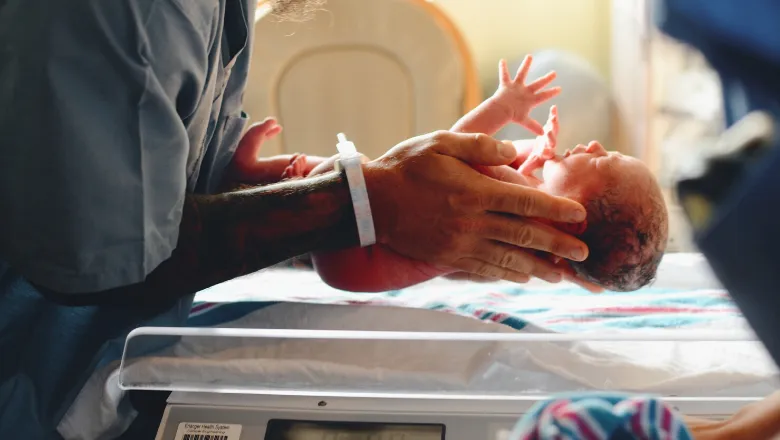Premature birth was associated with a profound reduction in connectivity between many brain regions, and with a reconfiguration of the organisation of functional brain networks

Researchers from the £12 million Developing Human Connectome Project have used a novel type of medical imaging to show how different areas of a newborn baby's brain communicate with each other.
Published today in Brain, the study used magnetic resonance images (MRI) with unprecedented resolution from more than 300 healthy babies to define how healthy babies' brains are connected, then researchers could assess whether particular clinical risks affected brain development.
They found that in healthy infants born at the right time, connectivity between the brain areas controlling basic functions like sensation and movement was quite similar to that seen in the adult brain. Also, the visual system develops rapidly, probably related to the sudden richness of visual experience after birth.
Communication between parts of the brain linked with more sophisticated functions like decision-making and executive function was relatively reduced compared to adults.
One of the senior researchers Dr Dafnis Batallé said it was found premature birth was associated with a profound reduction in connectivity between many brain regions, and with a reconfiguration of the organisation of functional brain networks.
The findings can improve clinical understanding of how a baby's brain develops and may provide a way to identify subtle alterations leading to problems later in life. Early identification of babies at an increased risk is important in order to develop potential therapeutic strategies. In the future we hope to identify infants that may benefit of targeted interventions as early as few weeks after birth in order to improve their quality of life.– Dr Dafnis Battale
It is great to see that the combination of advanced image analysis tools and open datasets such as the developing Human Connectome Project can offer a new glimpse into how the brain organises itself during development.– Professor Daniel Rueckert, Imperial College London
The Developing Human Connectome Project is led by King's College London in collaboration with Oxford University and Imperial College and funded by the European Research Council.
It is providing high resolution magnetic resonance brain images from around 1000 unborn and newborn babies to scientists worldwide to support a large number of world-leading research projects into brain development and cerebral or mental health disorders. Further information is available on www.developingconnectome.org






